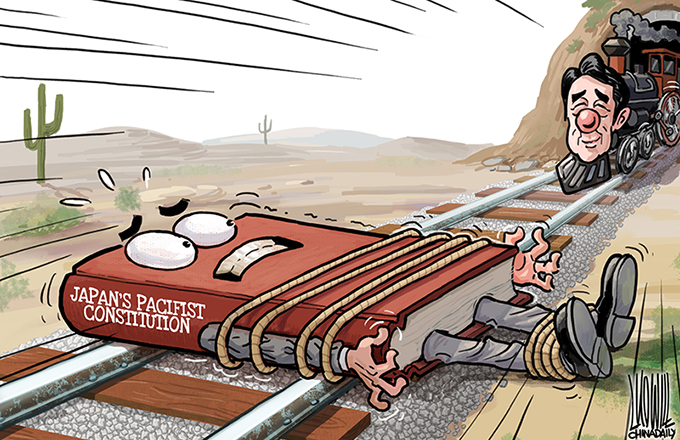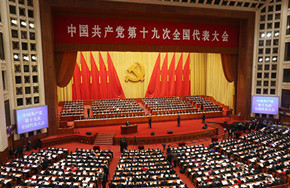US tax reform will hurt developing countries
The Republicans will reportedly introduce their tax bill to the US Congress on Wednesday, as US President Donald Trump and his Republican allies want to approve a plan by the end of the year to dramatically lower individual and corporate tax rates, double the standard deduction and scrap certain taxes that largely affect wealthier Americans.
The Trump administration unveiled the unified framework for tax reform in September. And if eventually the Congress endorses it, the framework would likely not only have a significant impact on the United States economy but also profound international repercussions including dealing a blow to developing countries. The tax reform elements likely to have severe ramifications beyond the US borders include the cut in corporate tax and the change from a worldwide tax system to a "territorial based tax system", including the granting of a 100 percent exemption for dividends received from foreign subsidiaries.
The framework calls for a significant corporate tax reduction-from the current 35 percent to 20 percent-which would increase the competitiveness of US products in the world as the cost of production would go down. It will also make the US a more attractive investment destination for US as well as foreign companies.
According to the Tax Foundation, the average corporate tax rate in 2015 in Organization for Economic Cooperation and Development member countries was about 25 percent, BRICS about 28 percent, and Africa about 29 percent. Thus it would be fair to say the current US corporate tax rate at 35 percent is high by world standard.
But a dramatic cut in the tax rate by the world's leading economy, to a level below that of major economies including France, China, Spain and Italy, could trigger reactions from other countries. In fact, a race for competitive tax reduction has already started and some countries including the United Kingdom, France and the Netherlands have already proposed tax cut plans. This "race to the bottom" could force developing countries to follow suit, hurting economies with a narrow tax base that rely on tax revenue for their general budget.
The shift to a territorial corporate tax system especially the treatment of the huge retained earnings by US companies with branches overseas would certainly have direct and far reaching impacts on the world market. The proposed new system imposes tax only on income earned in the US while the current system is a worldwide system under which profits of corporations are taxed regardless where they are earned.
Under the existing system, if profits accrued abroad are not repatriated back to the US, corporations do not need to pay 35 percent corporate tax as the US law allows them to keep the profits abroad indefinitely and treat it as deferred earnings paying minimum to zero tax. Some reports estimate US companies have stashed away more than $2.6 trillion overseas. The US law also exempts tax on the earnings reinvested abroad. Consequently, an important part of foreign direct investment by US multinationals is financed by retained earnings. It is especially so in developing countries where the rate of return on FDI is mostly higher than that in mature economies.
Although the US tax reform is overdue, its potential impact on FDI and future behaviour of US multinationals cannot be overlooked. The US is the world's largest economy and also the largest outbound FDI investing country. The proposed tax rate cut and the territorial tax system would mutually reinforce each other and significantly reduce the incentives to investment abroad by multinationals. This is in line with the election promises made by Trump, namely to revitalize American manufacturing industries and create more jobs at home.
US foreign direct investment in developing countries is likely to decline because of the disincentives to invest abroad. On top of it, for developing countries having higher corporate tax rates than the US, their large corporations may also try to invest in the United States to benefit from all the tax incentives. Therefore, it is high time developing countries analyzed the potential impact of the US tax reform on their economies and prepared for the possible passing of the framework, with perhaps minor changes, into law by the Congress.
The author is a special advisor on economics and development finance, South Centre, a Geneva-based intergovernmental organization of developing nations.





















